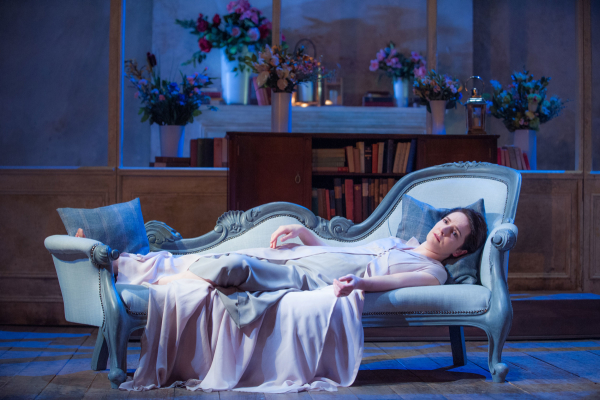Hedda Gabler (Edinburgh Lyceum)

© Tommy Ga-Ken Wan
Hedda Gabler, Ibsen's great tragedy (or is it?) of an independent woman constrained by the conventions of her society, has lost little of its power in the present day.
Its themes of power, compassion and manipulation speak almost as loudly to our age as to his, and the greatest virtue of this Lyceum production is that it allows the story to speak with maximum clarity and minimum fuss. The brilliantly constructed drama tightens like a screw and, in Richard Eyre's version, the dialogue feels contemporary without losing the sense of intensity that lands it squarely within the closed world of its time.
The performances make for a mixed bag, though. Centrally, Nicola Daley is a somewhat distant Hedda, who struggles to bring to life the character's depth. She has wide-eyed intensity aplenty, and the sense of Hedda playing a part among her contemporaries is clear. However, the multiplicity and depth that makes this such a great character rather elude her; she tends to live the emotions one-at-a-time, rather than encapsulating the well of contradictions that make Hedda so fascinating.
A telling moment comes in the third act when Eilbert first mentions the idea of "ending it all". Sitting entwined with him on the sofa, Daley's Hedda instantly switches to a sense of joy or excitement at the idea that she might control the deed, but there is little depth or suggestion to the gesture, and not much to suggest that, in reality, Hedda might mingle this triumph with other, more troubling sensations.
Others fare better. Jack Tarlton, in particular, cuts a brilliantly physical figure as Eilbert Loevborg, throwing himself into the character's battle with his own emotions, as well as with the conventions of the society in which he only just manages to operate.
As Brack, Benny Young's Mephistophelian stage presence helps to suggest the darker side of the judge's motivation, his musical, whisky-flavoured intonation adding delicious malevolence to the words, as well as to what remains unsaid. Lewis Hart is winningly naïve as Tesman, the victim of circumstances he struggles to understand, let alone control, and Jade Williams makes a prissy Thea Elvsted, an even more pathetic victim than Tesman.
My fourth star is awarded for Amanda Gaughan's production which, together with Jean Chan's set designs, carefully and cleverly suggests both encroaching decay and a gathering sense of doom as Hedda's actions finally close in on her, literally so as the night draws on.
The costumes play it straight, placing us firmly in the end of the nineteenth century, and if the set only seldom reveals Hedda's distaste for her own surroundings, then the characters' interactions with one another (especially the little issues, such as who sits where) make explicit the subtle questions of power at the play's heart.
Quite rightly, and most laudably, the final scene leaves unanswered the great question of whether Hedda is finally a victim or the only free mover in the drama.
Hedda Gabler runs at the Lyceum Theatre in Edinburgh until 11 April










